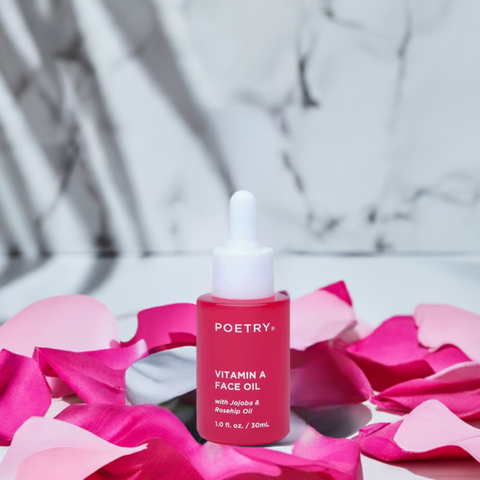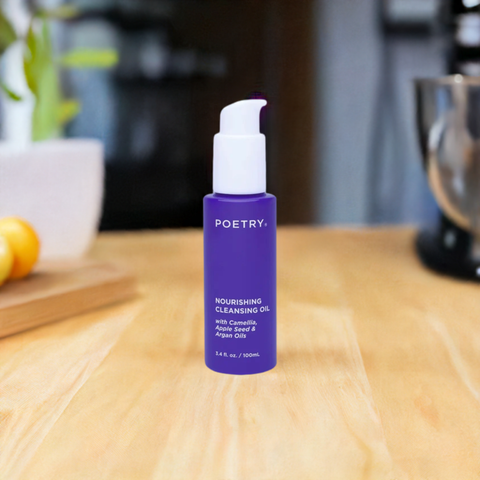Introduction
In the vast world of skincare, natural Vitamin A face oils have emerged as powerful allies for maintaining healthy, radiant skin. This comprehensive guide will explore the different schools of thought on natural Vitamin A face oils, share effective tactics and strategies for their use, delve into fascinating insights, and highlight influential figures who have championed these oils. Additionally, we'll discuss how natural Vitamin A face oils, particularly those featuring organic rosehip oil, can benefit women with sensitive skin.
Understanding Natural Vitamin A Face Oils
Vitamin A face oils are typically derived from natural sources rich in retinoids, such as rosehip oil. These oils are renowned for their ability to promote skin cell turnover, reduce the appearance of fine lines and wrinkles, and improve overall skin texture and tone. When combined with carrier oils like jojoba, they offer a potent blend of nourishment and rejuvenation without the harsh effects often associated with synthetic retinoids.
Schools of Thought on Natural Vitamin A Face Oils
1. The Traditionalist Approach
Traditionalists believe in the time-tested benefits of natural oils like rosehip and jojoba. They emphasize the importance of using pure, organic oils that are free from synthetic additives. This school of thought values the holistic approach to skincare, where natural ingredients are preferred for their gentle yet effective properties.
2. The Modern Integrative Approach
This approach combines the best of both worlds: natural ingredients and scientific advancements. Proponents advocate for the use of natural Vitamin A face oils alongside other active ingredients to enhance their efficacy. This school of thought often supports combining Vitamin A oils with other skincare steps, such as serums and moisturizers, to create a comprehensive routine that addresses multiple skin concerns.
3. The Minimalist Approach
Minimalists argue that less is more. They focus on the simplicity and purity of using a single, high-quality Vitamin A face oil. This approach is particularly appealing to those with sensitive skin, as it minimizes the risk of irritation by reducing the number of products and ingredients applied to the skin.
Tactics and Strategies for Using Natural Vitamin A Face Oils
1. Patch Testing
Before incorporating any new product into your routine, especially one containing Vitamin A, it’s crucial to perform a patch test. Apply a small amount of the oil to a discreet area of your skin and wait 24 hours to ensure no adverse reactions occur.
2. Gradual Introduction
Start by using the Vitamin A face oil every other night, gradually increasing to nightly use as your skin builds tolerance. This helps to minimize potential irritation and allows your skin to adjust to the retinoid’s effects.
3. Combination with Hydrators
For optimal results, combine your Vitamin A face oil with hydrating products. Layering a hyaluronic acid serum underneath the oil can boost hydration and enhance the oil’s absorption. Follow with a moisturizer to lock in the benefits.
4. Nighttime Application
Vitamin A can increase your skin’s sensitivity to sunlight, so it’s best to apply Vitamin A face oils at night. This minimizes the risk of sun damage and allows the oil to work while your skin undergoes its natural repair processes during sleep.
5. Consistent Use
Consistency is key with any skincare product. Incorporate the Vitamin A face oil into your nightly routine and use it consistently to see the best results over time.
Insights and Impactful Figures in Natural Vitamin A Face Oils
Caroline Hirons
Skincare expert Caroline Hirons has spoken extensively about the benefits of incorporating natural oils into your skincare routine. She emphasizes the importance of quality and purity in oils, advocating for their use to maintain skin health and address specific concerns like aging and sensitivity.
Leading Dermatologists Who Promote The Use of Natural Vitamin A Face Oils, Particularly Those Featuring Organic Rosehip Oil, Include:
-
Dr. Heidi Waldorf: Dr. Waldorf highlights the multiple benefits of rosehip oil, noting its calming, hydrating, and anti-inflammatory properties. She emphasizes that rosehip oil contains antioxidants such as vitamins C, B, E, and carotenoids, which help limit skin damage and promote skin healing and elasticity.
-
Dr. Orit Markowitz: Dr. Markowitz supports the use of rosehip oil for its antioxidant properties, which aid in reducing photodamage and hyperpigmentation. She also mentions its anti-inflammatory effects, making it suitable for soothing irritated skin and conditions like rosacea and eczema. Dr. Markowitz recommends layering rosehip oil over other products to seal in moisture effectively.
-
Dr. Debra Jaliman: Another advocate for rosehip oil, Dr. Jaliman praises its ability to reduce inflammation and provide essential nutrients to the skin. She often recommends it to her patients for its gentle yet effective properties in improving skin texture and tone without causing irritation.
These dermatologists appreciate rosehip oil for its ability to provide gentle exfoliation, anti-inflammatory benefits, deep hydration, and support for the skin’s natural barrier. This makes rosehip oil particularly beneficial for women with sensitive skin, as it helps to soothe and nourish without causing irritation.
How Natural Vitamin A Face Oils Benefit Sensitive Skin
Sensitive skin often requires extra care to avoid irritation and maintain its delicate balance. Natural Vitamin A face oils offer several benefits:
- Gentle Exfoliation: The retinoids in rosehip oil promote cell turnover, helping to gently exfoliate the skin without the harshness of synthetic retinoids.
- Anti-Inflammatory Properties: Both rosehip and jojoba oils have anti-inflammatory properties that can soothe irritated skin and reduce redness.
- Hydration and Nourishment: Jojoba oil closely resembles the skin’s natural sebum, making it an excellent hydrator that doesn’t clog pores. Rosehip oil is rich in essential fatty acids and vitamins, providing deep nourishment.
- Barrier Repair: These oils help to strengthen the skin’s natural barrier, protecting it from environmental stressors and preventing moisture loss.
Conclusion
Natural Vitamin A face oils offer a myriad of benefits for achieving and maintaining healthy, radiant skin. Whether you subscribe to the traditionalist, modern integrative, or minimalist school of thought, incorporating these oils into your skincare routine can provide significant improvements, especially for those with sensitive skin.
Influential figures like Caroline Hirons, Dr. Heidi Waldorf, Dr. Markowitz, and Dr. Debra Jaliman have championed the use of natural oils, emphasizing their importance in holistic skincare. By choosing high-quality, organic ingredients and following effective strategies, you can harness the power of natural Vitamin A face oils to achieve a glowing complexion.
Embrace the magic of natural Vitamin A face oils and discover the transformative benefits they can bring to your skincare routine. Your journey to healthier, more radiant skin starts with the power of nature’s finest oils.





Comments (0)
There are no comments for this article. Be the first one to leave a message!